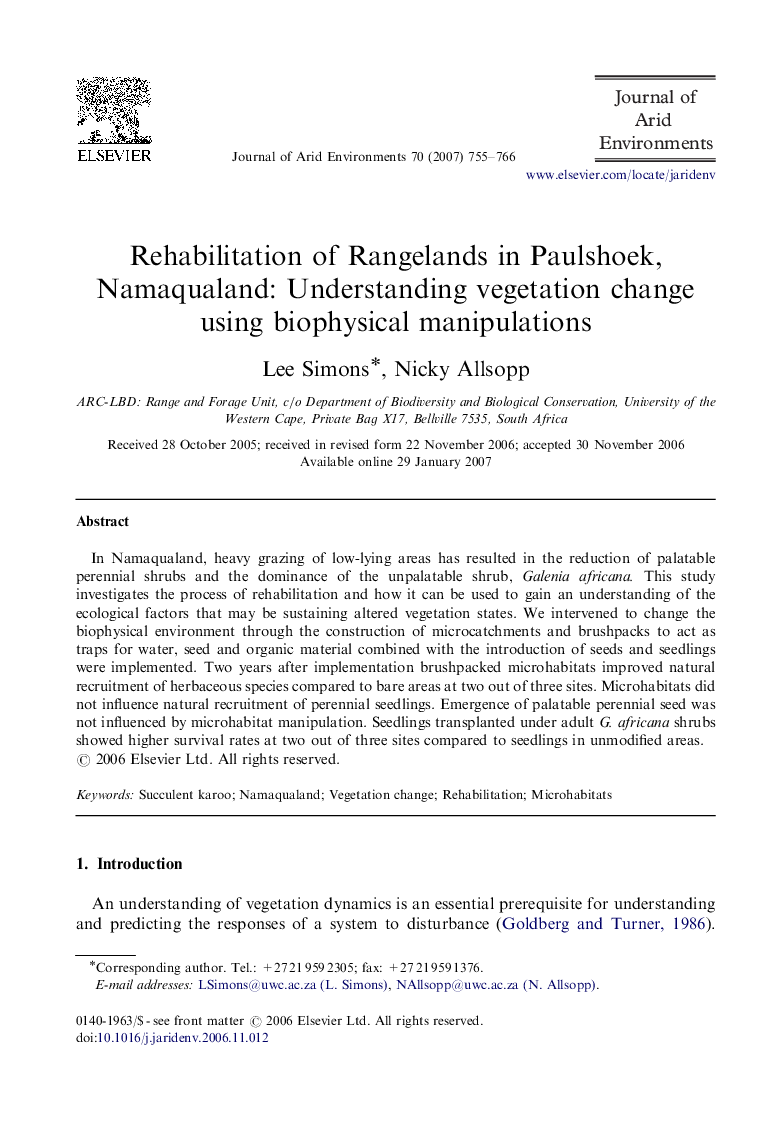| Article ID | Journal | Published Year | Pages | File Type |
|---|---|---|---|---|
| 4394324 | Journal of Arid Environments | 2007 | 12 Pages |
Abstract
In Namaqualand, heavy grazing of low-lying areas has resulted in the reduction of palatable perennial shrubs and the dominance of the unpalatable shrub, Galenia africana. This study investigates the process of rehabilitation and how it can be used to gain an understanding of the ecological factors that may be sustaining altered vegetation states. We intervened to change the biophysical environment through the construction of microcatchments and brushpacks to act as traps for water, seed and organic material combined with the introduction of seeds and seedlings were implemented. Two years after implementation brushpacked microhabitats improved natural recruitment of herbaceous species compared to bare areas at two out of three sites. Microhabitats did not influence natural recruitment of perennial seedlings. Emergence of palatable perennial seed was not influenced by microhabitat manipulation. Seedlings transplanted under adult G. africana shrubs showed higher survival rates at two out of three sites compared to seedlings in unmodified areas.
Related Topics
Physical Sciences and Engineering
Earth and Planetary Sciences
Earth-Surface Processes
Authors
Lee Simons, Nicky Allsopp,
